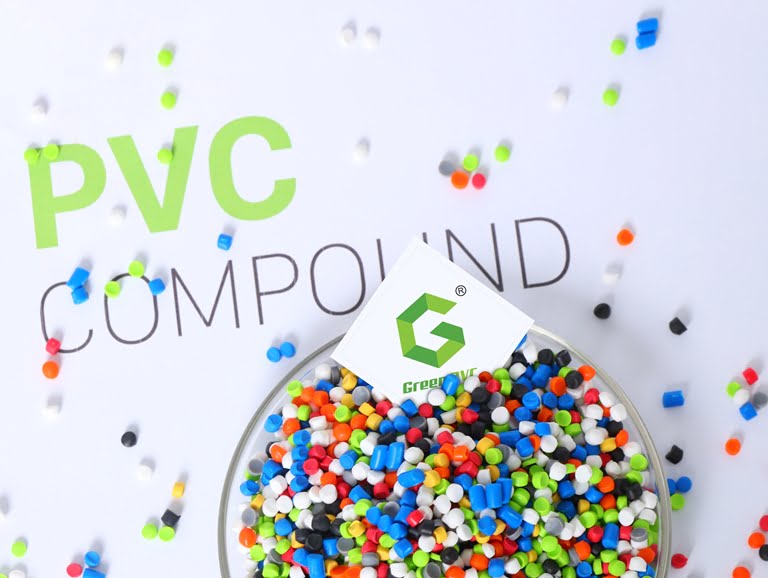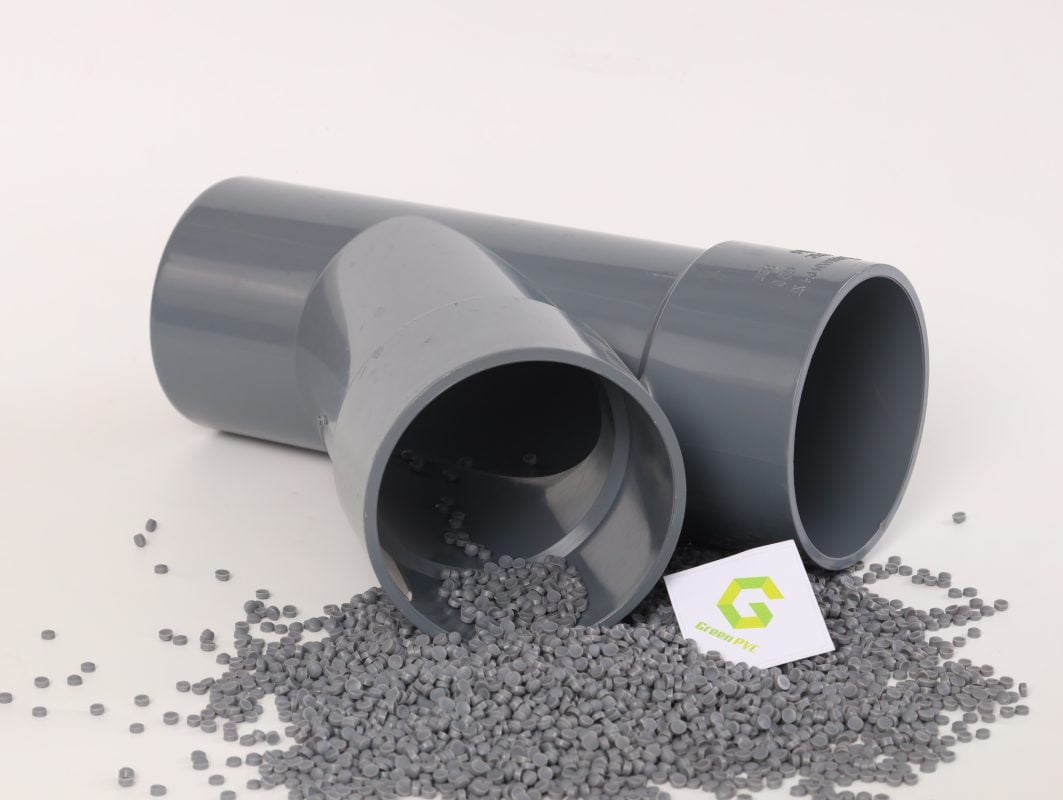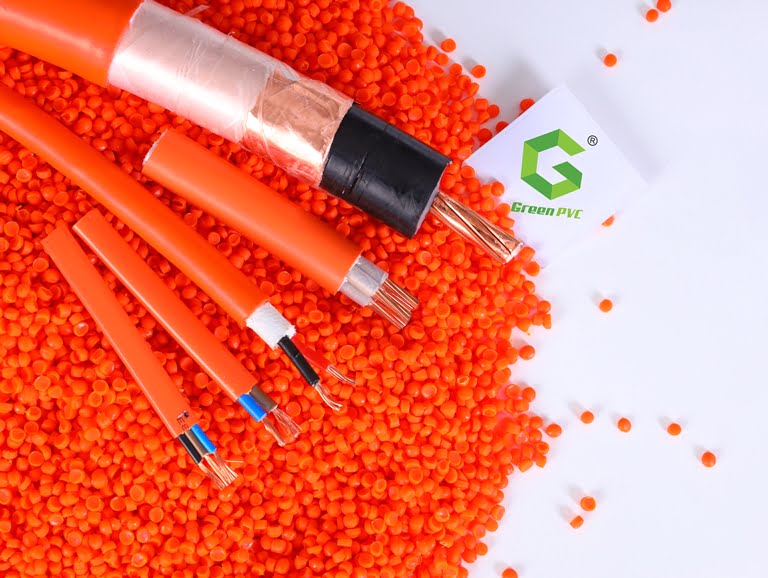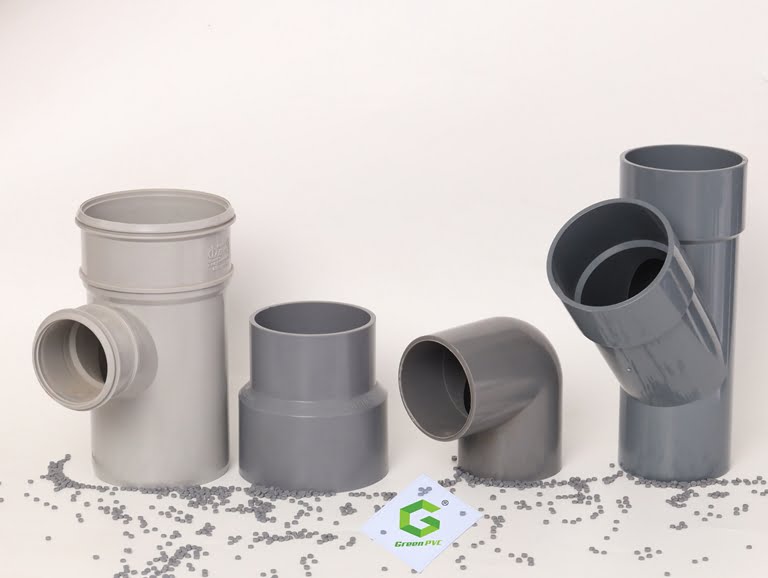There are differences between flexible and rigid PVC compounds, including the amount of plastic, the physical properties, and Practical applications. You can find all the information about PVC compounds here.
PVC (polyvinyl chloride) is a thermoplastic polymer used in many fields, including construction, healthcare, food packaging, car parts, raincoats, and toy manufacturing. It comes in a variety of shapes and sizes, not to mention a variety of hardnesses. Flexible and rigid PVC compounds manufacture different products based on their properties and physical characteristics.

So what is the basic difference to distinguish between rigid PVC & flexible PVC compounds?
The amount of plastic content contained in rigid PVC compounds & flexible PVC compounds
Generally speaking, Rigid PVC compounds usually contain little or no plasticizer, while soft PVC compounds have a high concentration of plasticizers. Plasticizers are of two different types: primary plasticizers and polymeric plasticizers. Primary plasticizers include phthalates, phosphates, and fatty acid compounds. Adipate, propylene glycol azelate, and sebacate are a few of the polymer plasticizers. If the composition of phthalates, adipates, and phosphate is larger, PVC will have more ductility.
Each type comes with its pros and cons. Rigid PVC can be stronger and more durable while applying flexible PVC can resist the harmful effects of chemicals and liquids.
Unraveling the Chemical Structure difference between flexible and rigid PVC Compounds
The distinction between flexible and rigid PVC starts at the chemical level. PVC, in its base form, is durable and easy to process. However, various components are added during formulation to alter its fundamental properties. In rigid PVC, these additions often include stabilizers, impact modifiers, and sometimes processing aids. On the other hand, flexible PVC incorporates plasticizers to increase its elasticity and resilience.
Flexible PVC Compounds
Including plasticizers, such as phthalates and adipates, gives flexible PVC its name and distinct characteristics. These additives slide between the PVC polymer chains, effectively loosening the structure and providing mobility, imparting the flexibility and softness for which this compound is known.
Rigid PVC Compounds
Contrary to flexible PVC’s flexibility, rigid PVC remains stiff and robust due to the minimal or complete absence of plasticizers. In its place, rigid PVC incorporates other components that bolster its rigidity, ensuring it maintains its form effectively under pressure.

Laying Down the Physical Properties
The specific gravity, melting temperature, and resilience to various environmental factors differentiate the physical attributes of each PVC compound.
Specific Gravity
Rigid PVC boasts a higher specific gravity, often ranging from 1.3 to 1.45 g/cm3, making it denser than the more buoyant and lighter flexible PVC, with a typical range of 1.1 to 1.35 g/cm3. This distinction contributes significantly to the product’s durability, weather resistance, and suitability for demanding applications.
Melting Point difference between flexible and rigid PVC Compounds
Rigid PVC exhibits a higher melting point, typically ranging from 160°C to 210°C, in contrast to the lower melting range of 100°C to 150°C found in flexible PVC. This characteristic makes rigid PVC more appropriate for applications demanding heat resistance and dimensional stability under load.
Environmental Resilience
While the resilience of both flexible and rigid PVC compound compounds is a function of the additives they contain, the rigid’s ability to withstand UV rays and harsh weather conditions due to a lack of plasticizers makes it suitable for long-lasting applications such as window frames and high-pressure pipelines.

See more: PVC COMPOUND from Green PVC Compound in Vietnam
Practical applications of flexible and rigid PVC compounds
Applying the PVC compound will suggest the specific qualities and benefits it must have. From there, PVC compound manufacturers will adjust and adhere to the ratios during manufacturing.

Flexible PVC Compounds applications
Flexible PVC’s applications are as varied as they are practical. Due to its resistance to oils, greases, and chemicals, it is a popular material for making hoses, boots, and other protective apparel. Its softness and flexibility make it an ideal choice for tubing that needs to wind and bend, cable sheathing, and even some medical devices.
Rigid PVC Compounds applications
Rigid PVC’s strength and resilience lend to numerous applications where structural integrity is crucial. Commonly used in the construction industry, rigid PVC finds itself in everything from durable window profiles and weather-resistant roofing materials to underground drainage systems, profiting from its ability to withstand mechanical stress and maintain its shape over a long service life.
Sustainable Considerations and Final Thoughts.
The choice between flexible and rigid PVC also touches upon environmental concerns and end-of-life management.
The Sustainable Angle
Though both compounds are recyclable, the higher concentration of plasticizers in flexible PVC means more stringent reprocessing requirements. Rigid PVC, on the other hand, is easier to recycle and presents a less hazardous material to manage post-use. Both have contributions, albeit different, to the sustainable lifecycle of a product.
In conclusion
The distinction between flexible and rigid PVC compounds is not merely a matter of choice but an informed decision that defines product performance and integrity. By understanding their differences, manufacturers can leverage incredible possibilities and potential, ensuring that the end product meets and exceeds the market’s and its consumers’ needs.
The Value of a Trusted Partner
Ensuring your business aligns with a PVC supplier that understands your needs and can deliver the suitable compound for your specific application is vital. Look for a partner like Green PVC, whose commitment to quality and range of PVC compounds can meet diverse industry needs.
At Green PVC, we offer a full range of rigid and flexible PVC compounds for industrial extrusion and injection molding that your business needs. We are proud to have become one of Vietnam’s largest PVC Compound factories, with an output of up to 15,000 MTs/year. The Nhat Huy Group’s PVC compound has exported finished products to more than 30 countries throughout Asia, Europe, and America.
See more
Why Green PVC’s Flexible PVC Compounds Are the Choice for Industry Leaders
| Nhat Huy Group is a leading Vietnamese manufacturer and exporter of various products. Founded over a decade ago, we have been doing business with customers worldwide, spreading across five continents. Green PVC JSC is a PVC compound factory belonging to Nhat Huy Group. Since its inception, the Board of Directors has oriented the company toward industrial production. Our factory has modern equipment, machines, and advanced production lines worldwide. |
